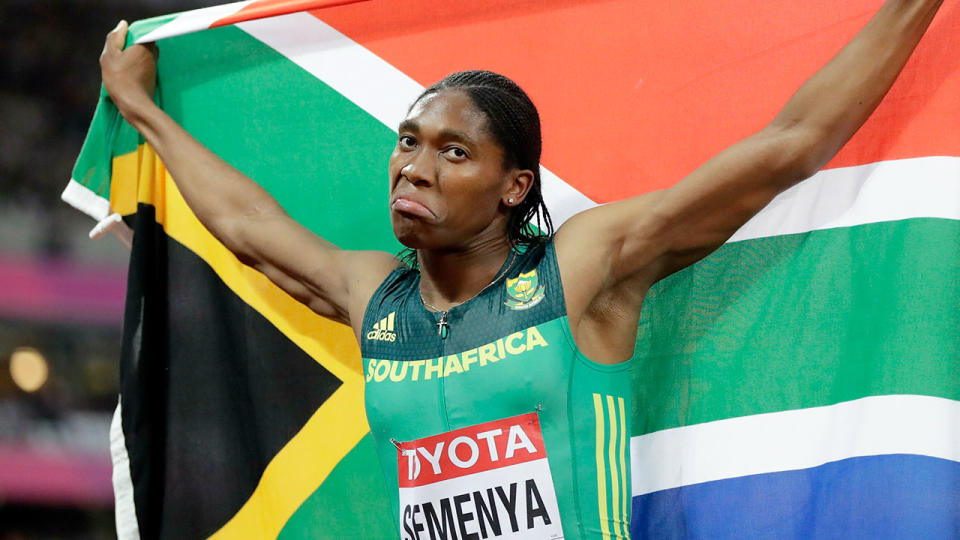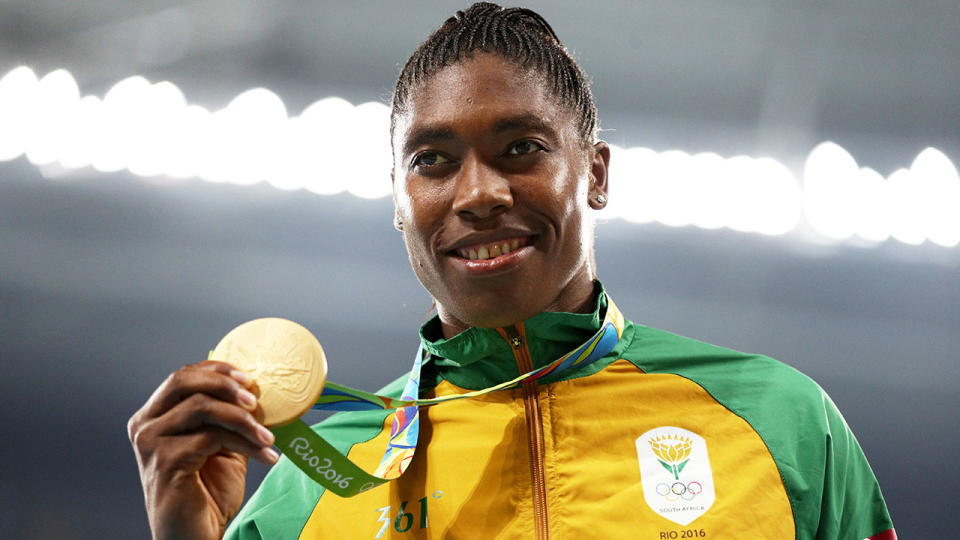You can't 'drug me': Caster Semenya fumes as athletics appeal fails

South Africa's double Olympic 800m champion Caster Semenya says she will never accept drug treatment, despite failing in her appeal to compete in athletics at the Swiss Supreme Court.
The Swiss court handed down the decision that Semenya cannot compete again until she accepts being treated with hormone-suppressing drugs, as per the previous ruling from the Court of Arbitration for Sport (CAS).
'AT ANY COST': Japan's defiant Olympics call amid virus crisis
'OUT OF CONTROL': Explosive new claims about Djokovic anger issue
SPLASH THE CASH: Aussie's $350,000 splurge after porn windfall
The court dismissed the appeals submitted by Semenya and her athletics federation against the decision by CAS on eligibility regulations for differences of sexual development (DSD) athletes.
"The Court of Arbitration for Sport had the right to uphold the conditions of participation issued for female athletes with the genetic variant '46 XY DSD' in order to guarantee fair competition for certain running disciplines in female athletics," the Swiss court said.
World Athletics banned Semenya and other DSD athletes from races between 400m and a mile unless they take testosterone-reducing drugs.
Semenya is classified as a woman, was raised as a woman and races as a woman.
But for World Athletics, women like Semenya, with certain masculine attributes due to DSD, are classified, biologically, as men. It is a position hotly contested by South African officials.
In the build-up to the 2009 world championships in Berlin, where an 18-year-old Semenya went on to win gold in the 800m, the South African had to undergo gender verification testing to confirm her eligibility to compete in the women's category.
She was subsequently put on medication to reduce her testosterone levels, spending six months sidelined by World Athletics.
Semenya, born with the "46 XY" chromosome rather than the XX chromosome most females have, described the experience as like that of being treated like a "human guinea pig" and vowed never to again allow World Athletics (then known as the IAAF) to enforce medication upon her in order to compete.
Semenya refusal threatens Olympics involvement
After Tuesday's ruling in Switzerland, Semenya again refused to comply, even though it might mean missing out on the Tokyo Olympics, postponed until 2021 because of the coronavirus pandemic.
"I am very disappointed by this ruling, but refuse to let World Athletics drug me or stop me from being who I am," she said.
"Excluding female athletes or endangering our health solely because of our natural abilities puts World Athletics on the wrong side of history.
"I will continue to fight for the human rights of female athletes, both on the track and off the track, until we can all run free the way we were born. I know what is right and will do all I can to protect basic human rights, for young girls everywhere."
Dorothee Schramm, the lawyer who led Semenya's appeal, said the decision was a "call to action – as a society, we cannot allow a sports federation to override the most fundamental of human rights".
But World Athletics welcomed the Swiss court's decision, hailing it "a legitimate and proportionate means of protecting the right of all female athletes to participate in our sport on fair and meaningful terms".

"For the last five years World Athletics (formerly IAAF) has fought for and defended equal rights and opportunities for all women and girls in our sport today and in the future," the body headed by Sebastian Coe said.
"We are committed to the full participation of women in the sport of athletics, be that as elite female athletes in fair and meaningful competition, as young girls developing life and sport skills, or as administrators or officials."
World Athletics added the DSD regulations, as recognised by the Swiss court, "are not about challenging an individual's gender identity, but rather about protecting fair competition for all female athletes".
"World Athletics remains committed to applying the regulations carefully and sensitively to ensure that 46XY DSD athletes who wish to compete in the female category are able to do so safely and fairly."
Semenya's lawyer, Greg Nott, suggested this was far from the end of the road for his client.
"This setback will not be the end of Caster's story," he said.
"The international team (of lawyers) is considering the judgement and the options to challenge the findings in European and domestic courts."
with Yahoo Sport staff
